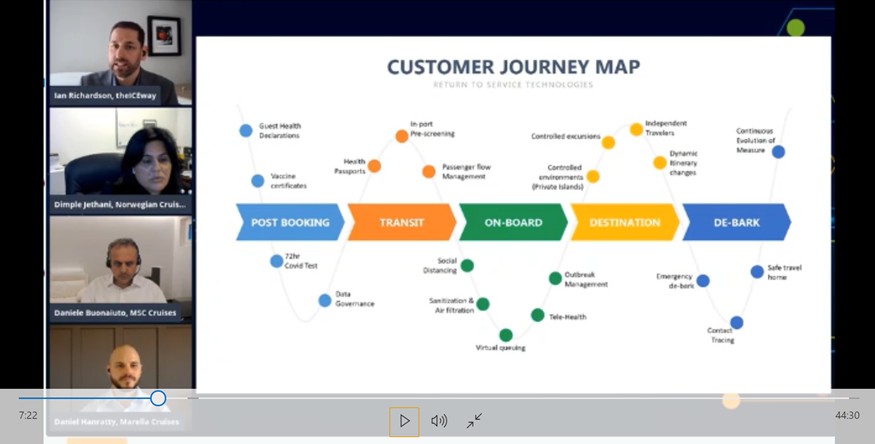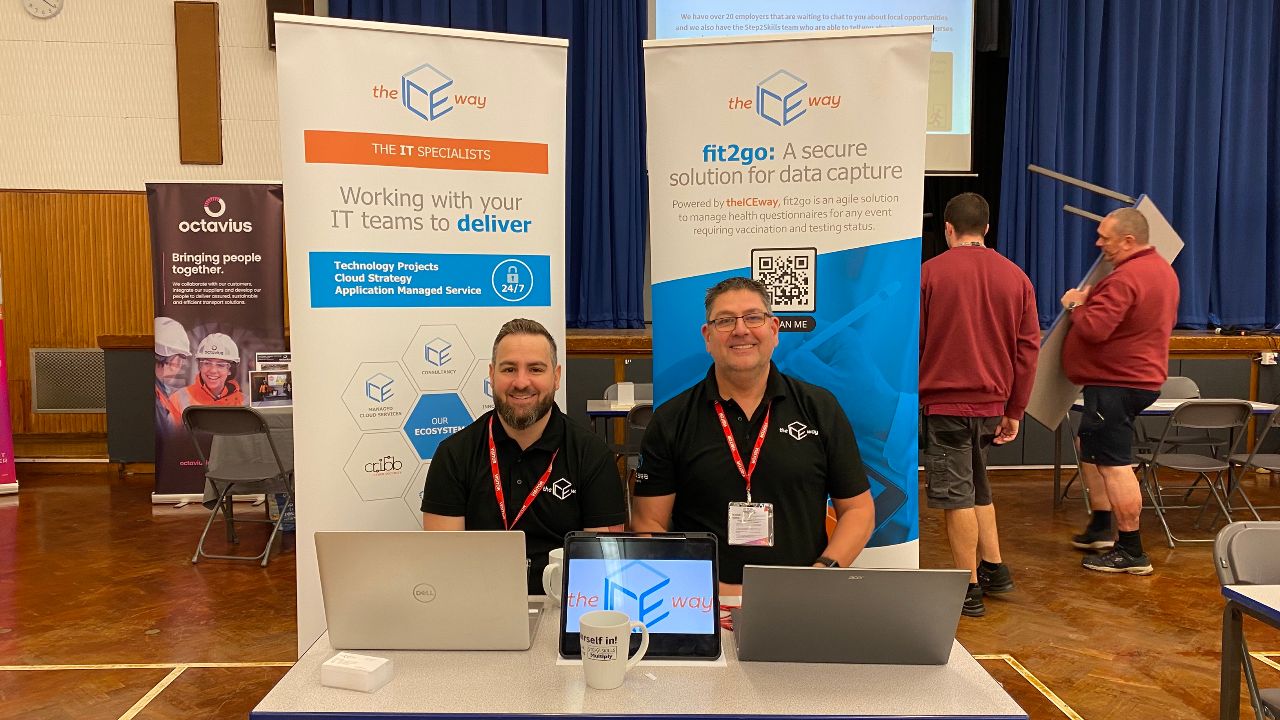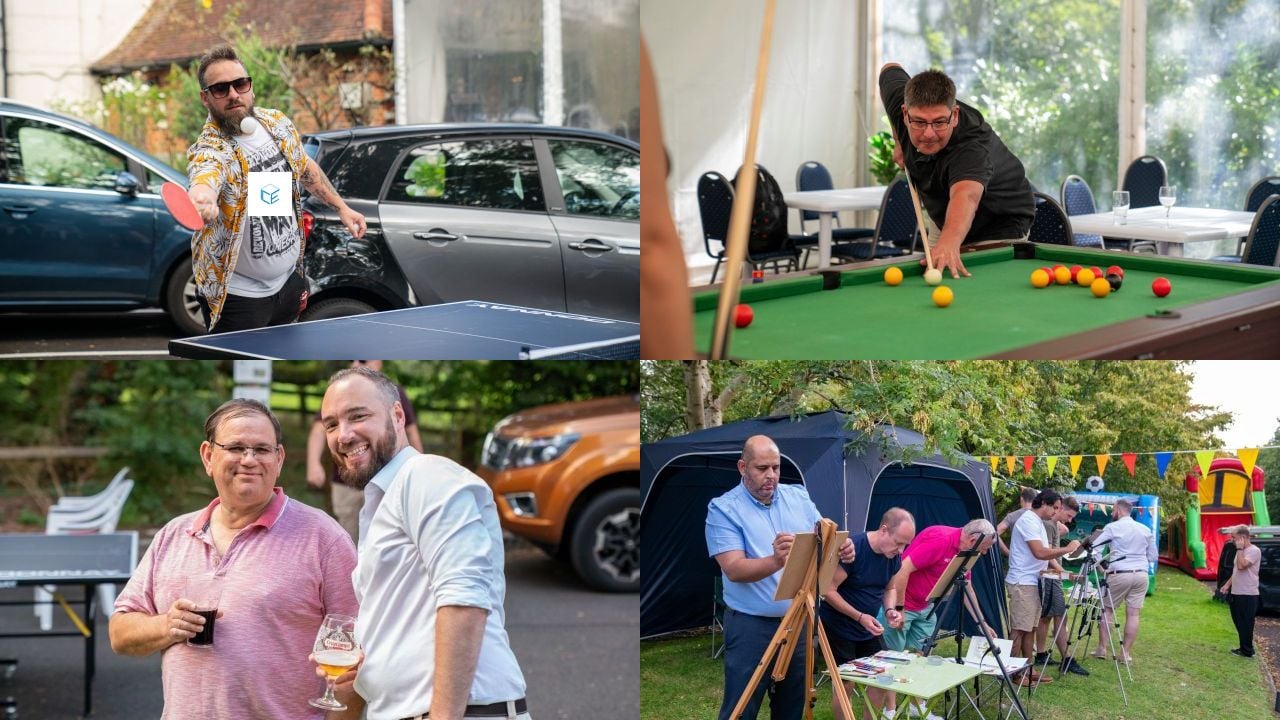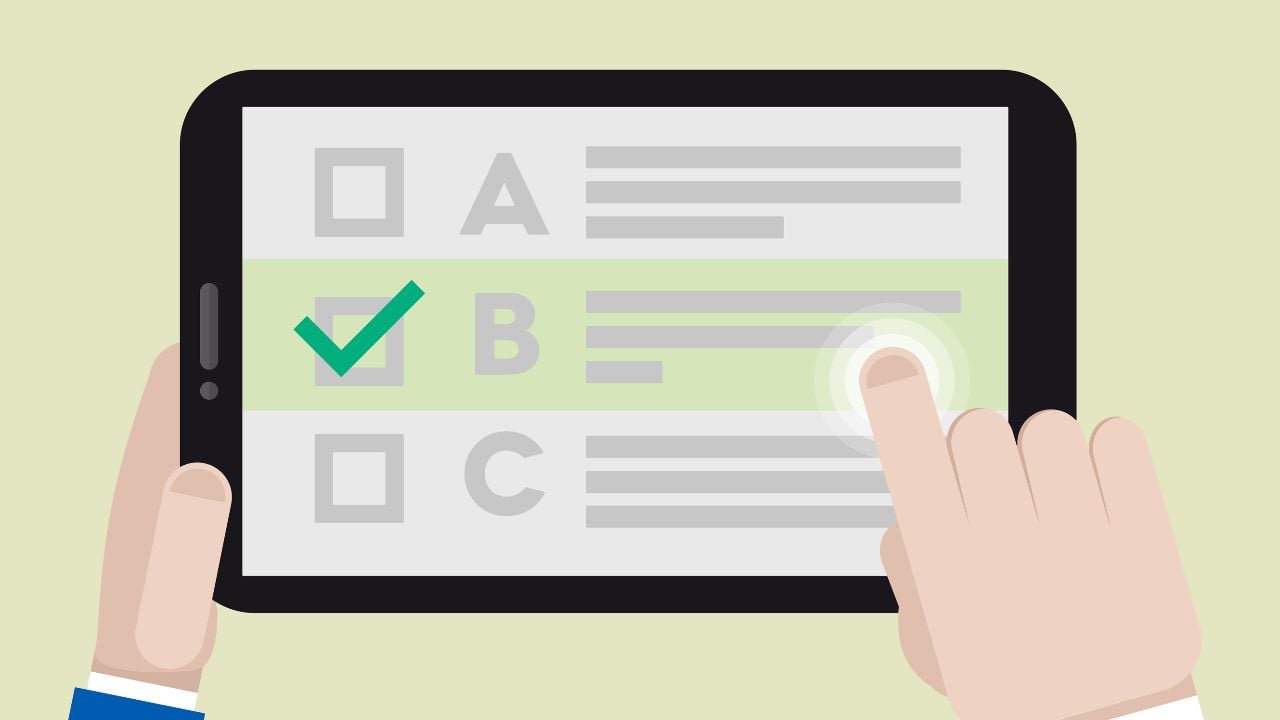Mid-April’s Seatrade Cruise Virtual Tech & Innovation event was met with much praise. Today we look back at the session on IT and its role in helping cruise lines return to service. theICEway’s Ian Richardson led the discussions in his other role as Seatrade Cruise Technology Ambassador. He was joined by Dimple Jethani, CIO, SVP IT Operations & Governance, NCLH, Daniele Buonaiuto, Chief Technology Officer, MSC Cruises, and Daniel Hanratty, Manager Technology Delivery, Marella Cruises & TUI River Cruises.
Below is a heavily summarised version of the conversation but those wishing to read a full transcript can do so by simply contacting us and requesting a copy.
We recently covered the ‘Tech Talk from the Top’ session from the event too, which you can revisit here, and in future weeks we will also look at another: Navigating the Future of Fleet IT Infrastructure Investments.
Those of you who regularly receive our ICEbreaker e-shot will be very familiar with our Seatrade coverage, but those yet to sign up can do so below. You can also visit our Seatrade Cruise page.
Return to Service Technologies
This panel session was essentially broken down into 5 key areas: Post-Booking, transit, on-board, destination and de-bark. After making the introductions, Ian Richardson led the discussion and some of the key questions and answers are featured here.
Post-Booking
Ian Richardson (IR): “… There's a number of areas there that we need to consider… the collection of data from guests… after the booking… for before the guests travel… potentially we can talk about proof of vaccine and… the 72 hour COVID test. How are these currently digitalised?”
Daniele Buonaiuto (DB): “One channel is for sure, the digital channel, but we also need to keep into account passengers not using digital at all… presenting normal documents. We need to manage both cases and we do this digitally or through a digitalisation of documents.
“We are now fine-tuning this data collection progressively, also keeping into account how the regulations are evolving.”
Dimple Jethani (DJ): “From our perspective, there's a few things we've done… our online check-in capabilities historically weren't as expansive… we're already going to have additional health protocols at the terminal, so we've taken more into the online check-in process. When it comes to health data, our perspective is keeping the most minimal amount of data and obviously keeping our HIPAA compliant applications.
IR: “Data governance… is obviously a key thing. [When] I originally spoke to cruise lines about this some of them were implementing extensions to their existing document management solution / CRM solution. Health data [must be kept separate from] other data.”
Daniel Hanratty (DH): “TUI group have… been evolving our online check-in; what we're actually asking the guests, what information we're collecting and exactly what we do with that information – where do we hold it? Who do we send it to?”
Transit
IR: “The next phase… is the transit phase, which is traveling to port and… in port. There's a lot in the news about health passports and European green cards, are these sorts of things on the radar of cruise lines?”
DJ: "There is no unified standard… in the US; obviously in the State of Florida, Governor DeSantis has made a statement around [a] digital health pathway. I think… he doesn't want… somebody feeling like they're being separated out from the economy in terms of participating. And I think cruise lines are very different as we all can appreciate our stance comes from the fact that we have not been able to operate in the US.
“We're going to have to keep a pulse on what's going on. We may start [in] one direction and pivot as the technology evolves and the opportunities evolve. There's plenty of open source platforms that are coming out… the virus is changing. So we expect change.”
IR: “…Let's talk about… in-port screening.”
DB: “…Digitalising the embarkation process is one of the keys to effectively… reduce contact with the crew, passengers and shore. In the transit phase, there are some antigen tests that we [have]… to pre-check the guests… and [we are minimising contact with] this.
“We… have to develop a technology that is flexible so that [we can] address the information we need to effectively validate the certificate. We have seen that people are going to check-in with different types of documents. We think that the technological footprint must be made by flexible and pluggable modules.
“We hope that [there will be standardisation amongst] the European union, the US, China… otherwise [it will] put at risk the quality of the data that we collect.”
IR: “What about… actually in the port, in terms of managing the passenger flow?”
DB: “We are not keeping crowded terminals… It depends how [the] terminal is designed, but we [conduct] a careful simulation before starting and in a certain port. Then we use technology to effectively digitalise the information and speed up the embarkation. This creates fluidity and… improves the effectiveness… through an accurate simulation, we can guarantee… social distancing.”
IR: “Marilla has [a] smaller… volume of passengers, but are there different challenges that you [therefore] have to cope with?”
DH: “We're trying to… digitalise as much as we possibly can.
“As part of the check-in process, we'll be encouraging people to… complete all required documentation and complete a boarding pass… and we're looking at designated embark times for passengers to try and stagger it a little bit.
“We'll [also] implement some mobile check-in… so we can get the passengers through the terminal and on the ship as quickly as possible trying to minimise the touch points… and cut the… queue times [down] for people.”
On-board
IR: “We [now] move on to the onboard phase; the first thing obviously is social distancing… but what sort of technologies are managing that social distancing?”
DH: “We're looking at… reducing capacity within our restaurants and venues. And we're looking at making as many things as possible bookable so that we can control the community… [and] our guests don't turn up to a venue and [are not] seated.
“We're looking at making as many things as possible bookable through our onboard app or through kiosks. And we're also looking at how can we introduce technology as part of customer flow... so [they] can have a look at an information screen and see which parts of the ship are busy at what time.”
IR: “[What about]… virtual queuing systems to help with the some of the typical choke points that you see around the ship?”
DJ: “We are looking at that. We want to go pro-reservations where [possible]… [and] we do anticipate having virtual queuing at some point.
“I think people also will pick up the phone and their cabin to call guest services. We're trying to put more… tech [in rooms, with] less collateral printed.”
DB: “Digitalisation helps… to reduce queuing and the MSC For Me [covers]… the majority of the services; 95% of the services can be reserved digitally. There are still a number of people that don't want to use… the app… so how [do] you tackle them? So we have transformed [how we will support] the reception processes, because the normal process is effectively based on queuing for a desk. Instead we have moved the desk.
“…Not only have we digitalised this – [it]… is already happening on Grandiosa – but we have transformed the way we assist them [in] avoiding queues. All the lounges have been put under control so… there is a check-in [and] check-out area. The… ships implemented… contact tracing. [You have] a bracelet that… is monitored… and through beacons technology… we can control who is close to you in any moment. So in the case that [there are a] few sporadic [cases of] contamination… we can check back… [and] manage the crisis.
“We need to monitor guests because only checking them at the beginning... and… at the end is not enough. You need to… monitor at least once a day the temperature of the passengers. [In the case of]… anomalies, we have a special team… managing this situation effectively. [With this] amount of… medical information… you need to [maintain]… the highest level of security and data protection.”
IR: “If [you are all]… looking to capture this quite delicate information throughout the journey… is there a particular cut-off of when that data is deleted after the actual voyage has finished in terms of data protection?”
DB: “At the moment, there are still no precise guidelines, so it's up to us… to decide. The GDPR is quite clear. You need to delete data once [you] are not using [it] anymore. People must feel protected by the usage of data because this is contextual to the holiday.”
Destination
IR: “Let's talk about the next phase, which is in destination. I want to talk about… the controlled environments, which are things like private islands. It's the same technology being implemented on the islands and in the controlled environments that you have on board.”
DJ: “We're going to have the same protocol on our private islands, temperature checks, and capabilities, [the] same requirements for staff on the Island. Essentially, we've got to create the safe bubble… the vaccination combined with the test on board… allows [for] another record of entry to say, ‘I feel comfortable with your group’. Initially in our first two months of sailing… if you do want to go on shore onto the port… [it is required] that you take a short excursion sponsored through us, and as things evolve… maybe that'll change. We have a set of protocols now, and if things get better, we'll modify.”
IR: “What do we do about… control [of] excursions? Everybody is being kept inside their bubbles when they're leaving the ship. Presumably, there's some pre-screening that has to be done when they… go back on [board]… is it the same sort of screening that's happening when they're embarking?”
DB: “It depends on… where you are [conducting] this process. In some cases it is requested that you pre-check [the passengers]. We are now standardising the protocol… to improve [things]. The concept of ‘bubbles’ [for] MSC is always present now because we are effectively offering a protected environment. [Passengers] are validated, certified, constantly monitored. In some cases… for specific locations, you cannot leave the bubble. This is perceived [by some] as a constraint but… customer feedback… [shows] that this is also perceived as a [positive] security [measure].
“The bubbles are needed for many reasons… to isolate… and distribute the risk. The bubble is normally guided and… the guide must be certified. [For] every… new group, they must once again [be] verified… in this way, we know that the bubble is healthy. The bubble [allows] people to enjoy [their] holidays.
“[With regard to] technology… we had to modify the… systems and the attributes, because we needed to track additional information [which will] be kept and monitored by our medical staff.”
IR: “It's going to be a while before… independent travellers [are] going into port, but one of the key things about that is going to be… the status of the… ports on the itinerary that the ships are calling at. How do we go about understanding… which ports the ship can call at? [Are]… there any dynamic itinerary changes that need to [be made]? I'm talking specifically around… using systems [and data] to actually predict… the local status of ports?”
DH: “[Right now]… it is mainly based on the published statistics and analytics… from the ports and countries that we're sailing to. We're not looking into any sort of AI or software driven analytics… but I think it's definitely something that's interesting and that could aid [with] the port planning… [to] see… if there are any infection cases rising in one area. What do we do about that? It's not something we are currently looking at, but it is an avenue we can explore.”
DB: “Predicting behaviour is not easy… artificial intelligence strategy would take too long to be trained to be effectively deployed. Governments are [also] making different decisions [and there are]… other variables.
“How we can predict a preventative action? This also influences the quality and organisation… you… change the organisation on board. [Technology must be flexible]… because effectively, you need to recalculate the… itinerary, berth… velocity of the ship and so on.
“Technology… [plays] a really vital role because this kind of flexibility was not present previously. You can change an itinerary a few times a year, but not constantly as… [happens] now. Nonetheless, all these ways of managing the product with… [greater] flexibility [allows us to]… guarantee a good quality of product to our customers. And this is something we are proud of.”
De-bark
IR: “… in terms of getting the… passengers home safely, [are] there any technologies that are being implemented [for this]?”
DJ: “No specific technology at de-bark… we've got a good support system. There will be an opportunity to [be] COVID tested before you leave [the ship]. We're still working through [how to deliver the results]… but we'll offer that. From the guest experience perspective, they [will] want to take that to get on their flight.”










Leave a Comment